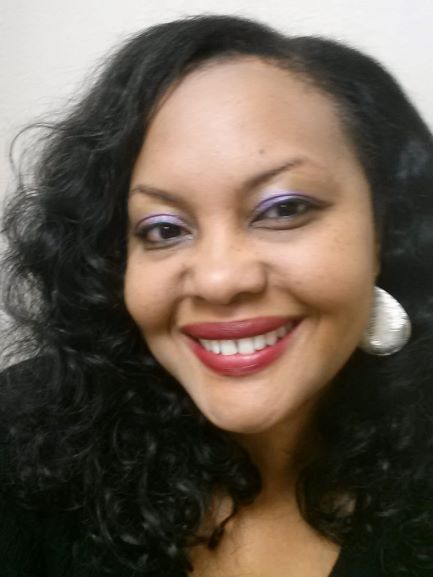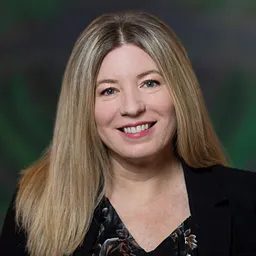It’s A Book Thing Presents: An Interview with Jeff Elkins, author of wild and weird Baltimore stories
Author’s
Bio: Jeff Elkins is the author of 12 novels, 4 books on the craft of writing,
and over 100 short stories. He prides himself in writing engaging stories with
dynamic and interesting characters. Almost all of his stories take place in
Baltimore. He podcasts and coaches writers as “The Dialogue Doctor.” Currently,
he lives north of Baltimore with his wife and 5 children.
Deliah Lawrence: What inspired you to
write your books?
Jeff Elkins: All of my
books have started with a scene. I’ll see in my imagination characters having a
conversation or experiencing something emotional. Sometimes these scenes come
in a dream, other times they come when I’m wide awake and working. They always
carry big emotions. These scenes tend to stick in my brain for days and I can’t
let go of them. First, I’ll write them as a short story. Then, if I think there
is more to uncover, I’ll turn the short story into a novel.
For example, my most recent novel
NRDS: National Recently Deceased Services started while I was on a walk with my
dog. We passed an old cemetery near my house and the image of a social worker
going to meet with ghosts to help them solve their problems so they can move on
popped into my head. As I played the scene out in my imagination, I saw the
social worker sitting on a bench with a line of ghosts waiting to talk to him.
The scene became powerful when I noticed there was a child in the line. In the
initial short story, I had the older ghosts usher the child to the front of the
line because their hearts hurt for him, and they wanted him to move on.
When I read the story a few weeks
later, it made me cry. I know if I feel something from a story I wrote, there
is something there to explore, so I shared the story with my writing partner,
JP. and He read it and said, “This is so sad. Can we make it more fun? What if,
in addition to dealing with death, the social workers also had to deal with the
nonsense of bureaucracy and being an underfunded government agency? Like in
Brooklyn 99?” We ran with that idea and the comedy-thriller full of heart about
social workers who want to help ghosts solve their issues and move on, NRDS,
was born.
All of my books have similar origin
stories.
DL: What elements do you think make a compelling
story?
JE: Great characters with unique voices
are critical. If the cast isn’t any good, it doesn’t matter what happens in the
plot, no one will stick with it. On the other hand, if the characters are
great, the plot can be total nonsense, and people will still love it.
The main characters in the cast have
to grow. There has to be an internal barrier or stigma or immaturity they must
overcome through the course of the story. We want to see characters change.
Characters that don’t grow are boring.
And finally, every scene needs to
center on these characters interacting. My books are 90%+ character
interaction. Sometimes that interaction is nonverbal, but they are always
interacting. It creates a lot of energy in the story-telling and helps readers
feel like they are present in the story.
DL: What obstacles did you encounter
while writing this book?
JE: I’ve had to overcome two major
obstacles. First, I’m dyslexic. English was my least favorite class as a kid
and I hated writing most of all. My form of dyslexia caused me to write letters
and words as mirror images. Because of my aversion to writing, I didn’t
discover how much I love writing fiction until I was in my mid-thirties.
Second, because I struggle with
Anxiety and I grew up deeply religious, I carried a massive amount of
self-doubt into my work. I felt everything I wrote and published was garbage.
Even books that only received five-star ratings I thought were terrible, so I
refused to market them. I would work hard to write them, publish them, and then
just let them sit on the shelf and not tell anyone about them because I was so
filled with self-hatred, I couldn’t imagine something good coming from me. I
told myself the lie that, “I’m not as good as everyone else and my books are
weird.” It took seven years of writing and publishing, and hearing from people
that found my books that they loved them for me to finally begin to accept
myself and my craft.
DL: Is there a specific author or book
that influenced you in any way either growing up or as an adult?
JE: As a teenager, I was a huge John
Grisham, Tom Clancey, and Michael Crichton reader. I think that’s why my work
bends into thriller. In college, I read primarily nonfiction. The only fiction
I digested was assigned by teachers. During that time, I found surprising
connections with Flannery O’Connor; but the majority of my reading was
theological in nature. I spent a lot of time with Barth, Bonhoeffer, Lewis, and
Moltmann.
As an adult, I started exploring fiction
more. In my thirties I fell in love with master writers like Toni Morrison and
Fredrik Backman. For Entertainment, I bend into magical and supernatural themes
with things like Lev Grossman’s The Magicians and anything/everything
written by TJ Klune. I’m also a big David Sedaris fan and I adore the work of
Ta-Nehisi Coates. When I write, I can feel all the stories from every era of my
life in my head, influencing what’s on the page. It’s like they say, we are
what we eat.
DL: What was the most valuable piece
of writing advice you’ve ever been given?
JE: There was a period of my adulthood in
which my family was living well below the poverty line. Because of my naivete
about how Money and the world worked, I’d taken jobs after college that “did
good” in the world but didn’t pay enough for us to live on. After a surprise
lay-off, with four young kids and a baby on the way, I turned to writing to try
and financially save the day. I got as much free advice as I could by stalking
experts online and went to work. I was sure writing novels was going to save my
family from poverty.
Unfortunately, as I learned over the
next three years, I was not built to be a “write-fast-publish-repeat” genre
writer (which was how all the experts said to make money). Part of the problem
was, I had so little confidence in my work, I couldn’t market it. I would write
something and immediately be ashamed of it. In desperation to make money, I’d
put it in the world, but then I wouldn’t follow the advice the experts gave
about marketing it (which was 9/10s the battle when it came to making money
from fiction at that time). Additionally, I didn’t like writing to formulas.
The advice from the experts was to
learn the genre troupes and write to them. I would read the top books in a
genre, plot out all my troupes, and assure myself that this time it was going
to work; but as I wrote, I’d spin out into weird directions that brought me
joy, but took me far afield from the genre. For example, I set out to write an
“urban fantasy.” What I produced was a story about a reporter hunting a serial
killer and instead of discovering a network of homeless superheroes who invite
invisible monsters (this is my novel Mencken and the Monsters). I loved
that it pushed questions around what reality was and led the reader to question
“who is the monster.”
Unfortunately for me, what was selling
in urban fantasy at the time were stories of twenty-something female FBI agents
who had magical powers. And the tragedy is, I knew that as I was writing
Mencken, but I convinced myself that readers who loved glowing-and-hot-FBI-agents
would also love my dumpster-diving-frustrated-dirty-maybe crazy-homeless-super
heroes.
After publishing ten books over four
years, and finding nothing but continued financial failure, I reached out to
one of the experts I’d stalked (J Thorn) and cried on the phone to him about
how fiction was supposed to save my family, but it was just taking my nights
away. His advice was beautiful.
After listening to me vent, he told
me, “Sometimes the best thing you can do is be yourself.”
To which I responded, “But what if I
hate what I write. I hate what comes out of me.”
He replied, “It sounds like that’s
what you really need to work on.”
Then he spent the next three months
Coaching me. He helped me build a business around other skills that I have
which allowed me to take the financial pressure off my fiction.
It took me three more years to accept
who I am and what comes out of me. I realize now that I’ll never be able to
“write to market,” but I love what I create. It’s dark and funny and
vulnerable. It never takes itself too seriously but isn’t afraid to explore
deeper themes. It’s me.
Without J Thorn’s advice, I’d probably
still be weeping at nights, fighting self-hatred, as I anxiously panicked about
how I was going to feed my kids. Best advice ever.
DL: If you could choose a superpower,
what would it be and why?
JE: I would love to be able to show
people how the world sees them. I think for many this would be a power tool for
encouragement. We often see the worst in ourselves. We need to hear that we are
fantastic and fantastically loved, that we are not broken, that we all have
beautiful things to give the world.
DL: What strategies do you use to
successfully market your book(s)?
JE: Ask me again after I’ve successfully
marketed a book.
DL: What tips would you give to aspiring
writers?
JE: The market is weird right now. The
write-fast-publish-repeat style of publishing has (as Becca Syme and others
have explained) led supply to outpace demand. Increasingly, it is harder for
new authors to win at the algorithm game. The addition of AI speeding up many
authors’ production has only complicated this problem. Know that if you plan to
go the indie publishing route like I did, you will need a war-chest of money to
launch a book now. Post launch (at the time of writing this), it still seems
possible to gain genre readers and find a footing in sales, but it is much
harder than it was five years ago.
The increased difficulty in the indie
channels of publishing has sent many authors back to more traditional means of
seeking representation for a manuscript through agents and working with small
publishers. There is an overflow back into traditional publishing that may slow
processes there as well.
My advice if you are starting off is
twofold. First, keep your eyes open and your head on a swivel when it comes to
the market. Don’t take what experts tell you at face value. Verify strategies
and information through research. If it sounds too good to be true, it probably
is. I’ve found that people in the author-world are generally well-meaning and
authentic. At the same time, in moments of change like we are in right now,
what worked for someone a year ago may already be outdated.
Second, have realistic expectations
for your work. We would all love to be household names like James Patterson or
Harper Lee, but striving for that kind of fame in our media saturated world
might not be realistic. McDonald’s has served over a billion people, and the
taco shop down the street from me makes an awesome street taco. The billion
people who know about McDonald’s don’t know anything about my local taco shop,
but my community loves that spot. As an author, I think many of us are going to
have to give up the dream of being a McDonald’s and find joy and satisfaction
in being a local taco shop, loved by a smaller community of people who are
excited every time they get a taco.
DL: What are three books you’ll never
part with?
JE: Here you go:
- Beloved by Toni
Morrison – a masterclass in characterization and dialogue. - The House in the Cerulean Sea by TJ
Klune – a genius-level example of how to handle a large cast of characters in a
fun and enchanting way. - A Man Called Ove by
Fredrik Backman – a beautiful example of how to build an unlikeable character,
make us fall in love with him, and then take us on a journey of change.
DL: What new projects are you
currently working on?
JE: In my fiction world, I’m writing
Season 2 of NRDS. In this season, the NRDS split in two. One group stays in the
small town of New Richmond to continue to try and keep a lid on the increased
paranormal activity, while a small group heads to NRDS HQ in DC to try and
discover the source of the mystery. I’m also preparing to rewrite my first four
novels with the hope of finally finishing the series I started nine years ago
and then abandoned. That will be my 2025 project.
For my non-fiction work (The
Dialogue Doctor), I’m currently building a Character Voice Encyclopedia and
trying to figure out what to do with a spiritual memoir about my life in and
outside of the evangelical church that I wrote in 2024.
Readers can get more information here:
- Website: https://jeffelkinswriter.com/
- Amazon Author Page: https://www.amazon.com/stores/Jeff-Elkins/author/B00IXPW1XI
- Facebook: https://www.facebook.com/JeffElkinsWriter
DL: Thanks so much for being here with us
today. I know my readers will enjoy getting to know you and your work.
JE: Thank you!
Originally Published on https://vocalexpressions.blogspot.com


























